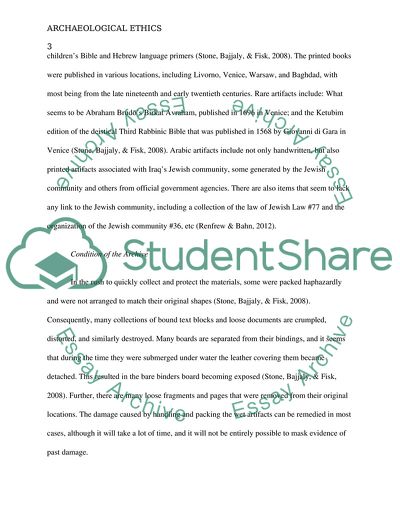Cite this document
(Archeological Ethics Essay Example | Topics and Well Written Essays - 2000 words, n.d.)
Archeological Ethics Essay Example | Topics and Well Written Essays - 2000 words. https://studentshare.org/archaeology/1844442-archaeological-ethics
Archeological Ethics Essay Example | Topics and Well Written Essays - 2000 words. https://studentshare.org/archaeology/1844442-archaeological-ethics
(Archeological Ethics Essay Example | Topics and Well Written Essays - 2000 Words)
Archeological Ethics Essay Example | Topics and Well Written Essays - 2000 Words. https://studentshare.org/archaeology/1844442-archaeological-ethics.
Archeological Ethics Essay Example | Topics and Well Written Essays - 2000 Words. https://studentshare.org/archaeology/1844442-archaeological-ethics.
“Archeological Ethics Essay Example | Topics and Well Written Essays - 2000 Words”. https://studentshare.org/archaeology/1844442-archaeological-ethics.


